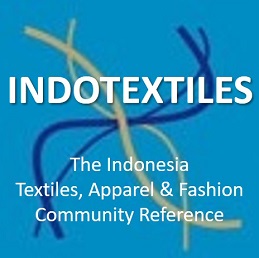Türkiye's textile industry, a cornerstone of its economy and a significant global player, has faced formidable challenges following the devastating earthquake of February 2023. Despite the upheaval, Türkiye demonstrates resilience, yet lingering concerns about ethical practices cast shadows over its future trajectory as a sourcing destination.
The earthquake's epicenter struck regions integral to Türkiye's textile manufacturing, including Gaziantep, Malatya, Adıyaman, and Kahramanmaraş, which collectively contribute over 40% of the nation's textile exports and 10% of garment exports. Ahmet Öksüz, Chairman of the Istanbul Textile and Raw Materials Exporters Association (ITHIB), acknowledges the seismic event's profound impact, testing the industry's resilience and operational capacity.
In the aftermath, Türkiye confronts broader economic uncertainties compounded by inflationary pressures. Textile exports witnessed a significant decline in 2023, echoing global trends. However, Türkiye's strategic proximity to the European Union presents a compelling advantage over Asian counterparts, positioning it for a potential rebound, particularly in the latter half of 2024.
To bolster competitiveness, Türkiye emphasizes investment in research and development, alongside a commitment to sustainability and ethical production. Aligning with global standards, the industry seeks to enhance production processes to meet environmental and ethical imperatives. Collaborations such as the pilot project with Wrap underscore Türkiye's proactive stance towards sustainability.
Recognizing the need for diversification, Türkiye explores new markets to offset declines in traditional export destinations. Trade delegations to Mexico, Colombia, and Argentina signal a strategic pivot towards emerging economies, mitigating dependency on EU markets.
Despite strides in resilience and sustainability, concerns persist regarding ethical malpractice and workers' rights. Reports by organizations like Clean Clothes Campaign (CCC) highlight instances of health and safety violations, harassment, and inadequate wages. Such challenges underscore systemic issues within the industry, transcending national boundaries.
Efforts to address ethical concerns are hampered by disconnected supply chains and insufficient oversight. Türkiye's garment workers, fearing increased pressure amidst rising orders, demand greater accountability from brands. Brands' responses to such grievances, as evidenced by surveys conducted by the Business & Human Rights Resource Centre (BHRRC) and the Middle Eastern Technical University (METU), fall short of expectations, indicating a need for concerted action and transparency.
As Türkiye's textile industry navigates uncertainties, a multifaceted approach is imperative. Embracing innovation, sustainability, and ethical practices while fostering greater collaboration between industry stakeholders and brands is essential. Only through collective action can Türkiye realize its potential as a resilient, responsible, and globally competitive textile hub.





